搜索结果: 1-15 共查到“Food”相关记录177条 . 查询时间(0.493 秒)
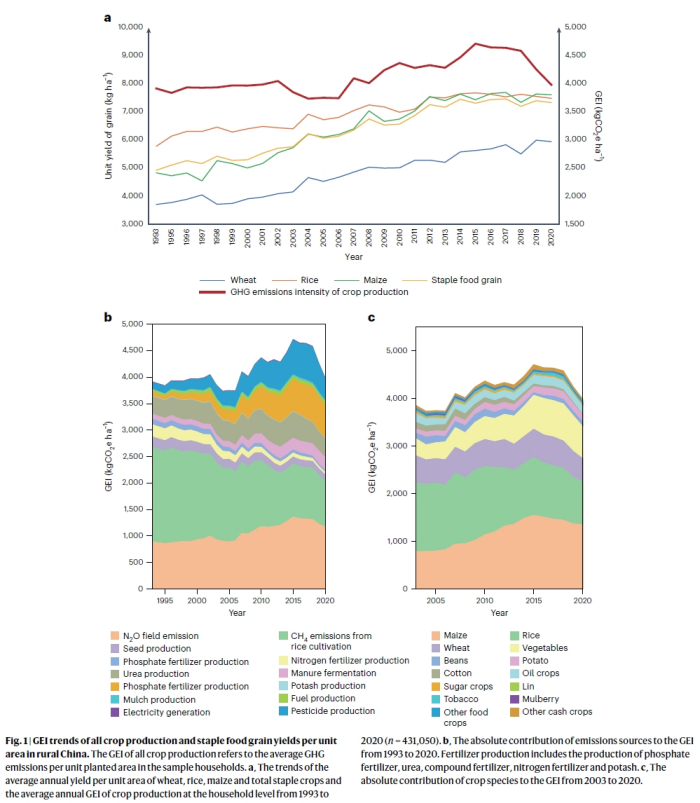
全球人口增长和有限的农业用地对同时追求更高的粮食产量和农业可持续性提出了挑战。粮食系统的温室气体排放量占全球温室气体排放量的21-37%,而且全球农业温室气体排放量仍保持以每年1%的速度增长。我国是世界上最大的粮食系统温室气体排放国,小农户占农业经营主体的98%,经营着70%的耕地。我国农场规模小、分散、数量多,加上机械化水平较低,对农业温室气体减排构成重大挑战。
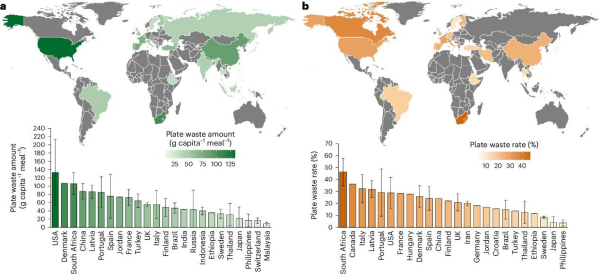
2024年来,食物损失和浪费问题引发了各界广泛关注,校园食物浪费尤为突出。研究团队通过实地调研发现,某大型城市中小学生的食物浪费量明显高于该城市餐饮业的平均水平。减少食物浪费是一个逐步建立科学、理性、文明消费习惯的过程,需要寻找切实有效的解决方案。学校作为教育的主阵地,是系统、有效干预消费行为和习惯的重要场所。
东北财经大学杨弦副教授的论文被Nature子刊Nature food接收发表
东北财经大学 杨弦 餐厅消费 饮食转型
2024/12/11
近日,东北财经大学管理科学与工程学院杨弦副教授、研究生高倩与中国科学院大学经济与管理学院段宏波教授、汪寿阳教授以及盘石数据科技有限公司的朱慕华博士合作撰写的论文“GHG mitigation strategies on China’s diverse dish consumption are key to meet the Paris Agreement targets”被Nature Food(...
El Niño: Malawi’s harvest of maize – its staple food – may fall by 22.5% this year
El Niñ o Malawi harvest of maize staple food
2024/4/1
Maize is the preferred staple of most of southern Africa. In Malawi it supplies two-thirds of national calorie intake. Nine out of 10 farming households produce maize and devote over 70% of their...
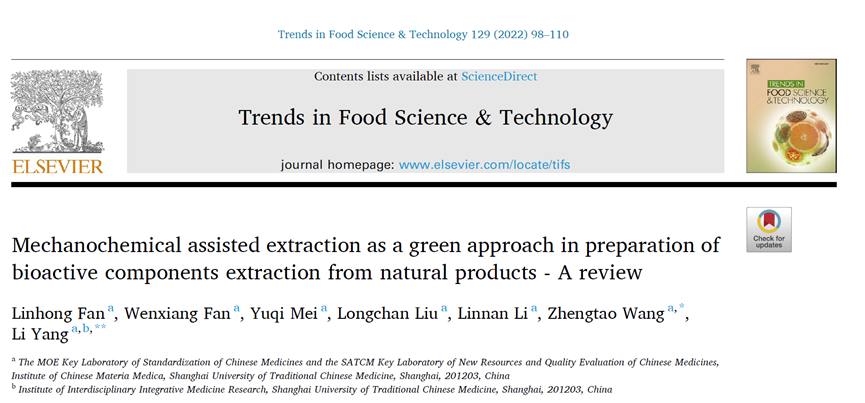
近日,王峥涛教授、杨莉研究员团队在食品科学及天然药物研究领域国际著名期刊Trends in Food Science & Technology发表综述文章,题为 Mechanochemical assisted extraction as a green approach in preparation of bioactive components extraction from natural ...
北京大学心理与认知科学学院王垒教授课题组在Food Quality and Preference发表论文,揭示饮茶对收敛性思维创造力的影响
饮茶 促进 发散性创造力 收敛性创造力 影响
2021/9/8
近期,北京大学心理与认知科学学院王垒教授课题组在Food Quality and Preference在线刊发了题为“Drinking tea improves the convergent creativity performance”的研究论文。以往研究证明,饮茶有利于发散性创造力,而收敛性创造力与发散性创造力密不可分。鉴于此,该研究假设饮茶也可以促进收敛性创造力。

近日,南方科技大学环境科学与工程学院讲席教授刘俊国与中国科学院地理科学与资源研究所研究员成升魁团队及来自农业农村部、武汉大学、南方科技大学、美国宾夕法尼亚大学、南丹麦大学等单位学者合作开展系统研究,成果发表在Nature Food期刊上。该研究基于2013-2018年间农业农村部对供应链食物损失和中国科学院对家庭和餐饮业食物浪费的大规模实地调研,结合文献数据,利用物质流分析方法,系统刻画了中国食物...
中国农业科学院农业经济与发展研究所普蓂喆和钟钰在JCR前5%期刊《Global Food Security》发表学术论文
中国农业科学院 农业经济与发展研究所 普蓂喆 钟钰 JCR Global Food Security
2020/10/22
受国家自然科学基金项目(71903187)、中国农业科学院联合攻关重大科研任务(CAAS-ZDRW202012)、中国农业科学院科技创新工程(ASTIP-IAED-2020-01)等共同资助,粮食安全与发展政策团队普蓂喆博士为第一作者、钟钰研究员为通讯作者的学术论文《Rising concerns over agricultural production as COVID-19 spreads: ...
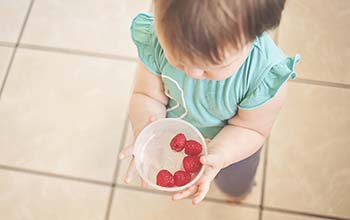
Altruistic babies? Study shows infants are willing to give up food, help others(图)
Altruistic babies infants give up food help others
2020/2/20
New research by the University of Washington Institute for Learning & Brain Sciences, or I-LABS, and funded by the National Science Foundation, finds that altruism may begin in infancy.
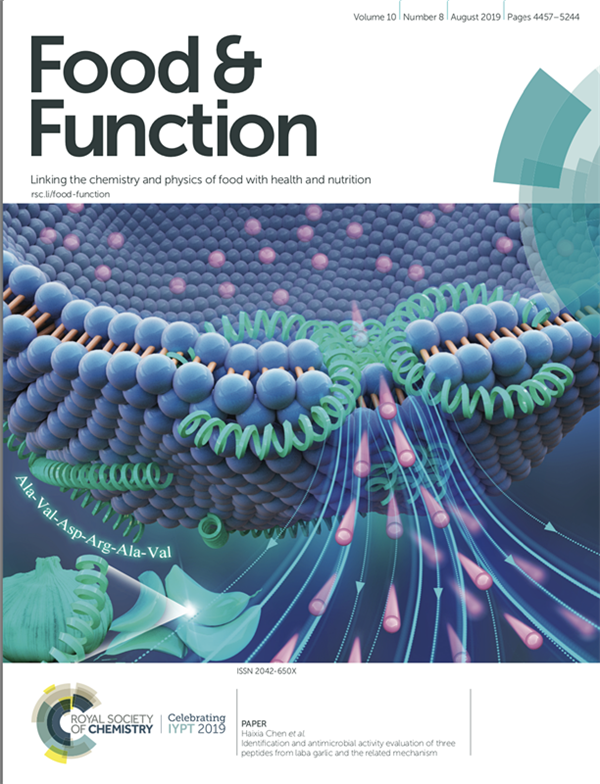
2019年8月,英国皇家化学学会旗下的国际著名科学期刊《Food & Function》(中科院分区一区,Top期刊)以封面文章的形式刊发了天津大学药学院陈海霞教授团队在天然抗菌肽鉴定及作用机制方面取得的科研成果《Identification and antimicrobial activity evaluation of three peptides from laba garlic and t...

Stanford Researchers Find Major Food Retailer’s Sustainability Program Drives Farmers’ Environmental Practices(图)
Stanford Researchers Food Retailer Sustainability Program Drives Farmers Environmental Practices
2018/1/31
When grocery stores tout sustainable products, consumers may take their claims at face value. Yet few studies have analyzed whether or not companies who claim to improve the sustainability of their pr...
2018年SPIE农业感知和食品质量安全会议(SPIE Sensing for Agriculture and Food Quality and Safety X)
2018年 SPIE农业感知 食品质量安全 会议
2017/11/27
Based on physical and chemical characteristics, optical sensing methods for real-time inspection of food, water and agricultural products can produce rapid, accurate, and consistent inspection solutio...
Pomegranate juice, but not an extract, confers a lower glycemic response on a high–glycemic index food: randomized, crossover, controlled trials in healthy subjects
carbohydrate digestion glucose transport glycemic index polyphenol starch
2018/11/21
Background: Low–glycemic index diets have demonstrated health benefits associated with a reduced risk of developing type 2 diabetes.
Duodenal and ileal glucose infusions differentially alter gastrointestinal peptides, appetite response, and food intake: a tube feeding study
glucose appetite food intake brake ileum duodenum GLP-1 PYY ghrelin
2018/11/19
Background: Activation of the ileal brake through the delivery of nutrients into the distal small intestine to promote satiety and suppress food intake provides a new target for weight loss. Evidence ...
“Big Food” Companies Have Less Power Than You Might Think:Progress Toward Sustainability Slowed by Limited Knowledge and Influence on the Farm
Big Food Companies Have Less Power Might Think Progress Toward Sustainability Slowed Limited Knowledge Farm
2017/7/21
A Dartmouth study finds that “Big Food” companies are striving to make food more sustainable from farm to factory but have less power than you might think. In fact, most Big Food companies have little...

